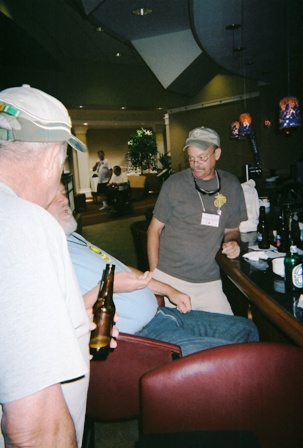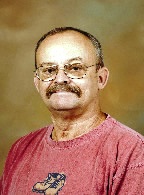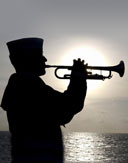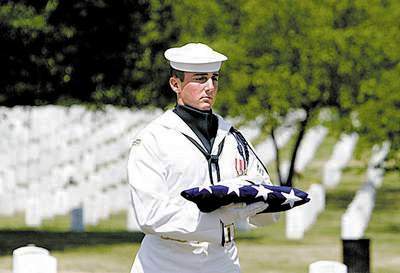Interview given by "Doc" Topmiller at the Reno Reunion 2008
Rest In Peace- "Doc" Bob






TOPMILLER Robert, born Oct 18, 1948 in Cincinnati, OH to Norbert Topmiller and Rita Meyer Topmiller. He attended St. Peter and Paul Elementary and graduated Moeller High School in 1966. He joined the Navy serving as a Navy Corpsmen with the US Marines in Vietnam. He was proud of his service and was an advocate to all veterans. He married Terri Nicks on Nov 1, 1969 in Weiser, ID. They had four children, Chris Topmiller (Brianne), Kevin Topmiller (Jaime), Robert Topmiller (Emily) and Jamie Sadler (Keith); and four grandchildren, Brooke and Scott Topmiller and Ross and Aidan Sadler. After being in business for over 20 years, Bob returned to school receiving his Ph.D. in history. He taught history to military personnel in South Korea and at EKU until his retirement in May 2008. He was a teacher who truly cared about his students. He will be missed by his family and his many friends. A memorial service will be 2pm Tue at Kerr Brothers Funeral Home-Main St. Visitation will be from 1-2pm Tue.
Doc Topmiller Eulogy by Mike Archer
September 2, 2008
We are here today to bid farewell to Bob Topmiller and in doing so, attempt to cope with the unimaginable tragedy and bewildering circumstances of his passing. The meaningfulness of Bob’s life is measured in as many ways as the people it touched. He was a husband, father, grandfather and brother and a son, who lost his mother in his early teens and whose father passed away less than a year ago.
When I met Bob, during the first weeks of the 1968 siege of Khe Sanh, he was fresh out of Navy corpsmen school; yet had already witnessed more carnage and human suffering than any 19-year old American boy should be called upon to do. Bob was twice wounded by shrapnel ministering to the wounded at Khe Sanh. As such, it would be easy to explain last week’s tragedy by concluding that he also received a mortal wound to his spirit -- and just did not succumb until last Wednesday. However, I believe it would be a great disservice to oversimplify his extraordinary life in that way.
Navy corpsmen are called “Doc,” by the Marines they fight to save. Yet, that seemingly trivial monosyllable carries with it volumes of respect for the dedication and bravery of these individuals. To be called “Doc” is one of the highest accolades in the Corps. Therefore, I will henceforth refer to my friend by that title.
Just last month at the Khe Sanh Veterans reunion, Doc reunited with Rick Noyes, a former Recon Marine at Khe Sanh. Rick, who was wounded while patrolling outside the base, would be the first combat injury Doc treated. Strangely enough, of all the hundreds of wounded who would eventually be carried to the Regimental Aid Station, Rick and Doc had been high school friends in Cincinnati, and up to that point had been unaware each was billeted just a hundred yards from the other. Though Doc initially found my lame attempts at humor during the siege to be inappropriate, which they were, we soon became great friends. When he left Vietnam five months later, a large group of us Marines attended his going away party near Phu Bai and paid him the ultimate honor by singing Anchors Away (though not having taken the time to learn the song, we replaced every lyric other than the chorus “Anchors away my boys” with “la-la-la.”)
I would not see Doc again for another 37 years – but he was in good hands. Upon returning to Great Lakes Naval Station, he met Terri Nicks, a fellow corpsman. Though Terri had not gone to Vietnam, she was spared none of the wretchedness of treating wounded, for many of the most severely wounded, burned and mentally unhinged victims of the fighting were medivaced directly to that distant hospital. It was Doc’s great good fortune that they fell in love and married; because Terri could share some of the heartbreak and pain of that war with him. Sadly, she too would be forever haunted by her patient’s screams of pain and the helplessness of not being able to heal them all. Terri would go on to give life to four wonderful children, but in a very real sense, she gave life to Doc as well -- probably decades of life – decades throughout which other lives, like my own, would be so profoundly changed for the better.
Without Terri as the anchor in his life, Doc may have drifted away before many in this room today would have ever had the opportunity to know him. Doc himself recognized this in the Preface to his recently published memoir Red Clay on My Boots, when he expressed his gratitude to her in these words: “Most important, my wife Terri, who has fought the battle of Khe Sanh by my side for close to 40 years.” With the support of his family, Bob left two decades of retail marketing behind and entered the halls of academia; earning his doctorate in history here at UK in 1998. He went on to become an inspiring university professor, who possessed a prodigious intellect and was fearless in the pursuit of truth. As his friend and fellow Khe Sanh veteran, Steve Orr, commented recently, he never spent even a short amount of time with Doc when he did not come away from the encounter having learned something new.I have had the opportunity to come to Kentucky each of the last three years and speak to history classes at EKU. There I was able to observe Doc in the classroom. His serious-minded and accomplished students gave him enormous pride; though he never stopped trying to reach them all, and, I think, recognized that even the more unremarkable kids were taking something away that would forever change the way they viewed their world. As the 19th century historian, Henry Brooks Adams, once wrote: “A teacher affects eternity; he can never tell where his influence stops.” Of all that he accomplished in his life, this may well be Doc’s principal legacy.
Doc’s numerous visits abroad, living with Terri in Korea, and later traveling alone, more than a dozen times, throughout South East Asia, not only expanded his student’s horizons in a unique and personal way, but also his own. He soon became an admirer of the teachings of the Buddha, with their focus on the pursuit of enlightenment through searching and self-discovery. Doc endured a highly emotional return to Khe Sanh alone in 1996, when most of the terrain features, recognizable to those who served there were still visible. As his awareness grew, he befriended numerous monks and nuns, writing The Lotus Unleashed, about the Buddhist Peace movement 1964-1966. A derivative of this was discovering the incredible number of children suffering from the residual effects of herbicides during the war. He and Terri have sacrificed in order to provide an ongoing endowment to a facility, The School of the Beloved, in Hue. Steve, Doc and I visited there last December, and the happiness of those poor children, whose profound neurological disorders would otherwise condemn then to lives of unspeakable degradation -- is a powerful testament to human kindness.
Doc also became an active supporter of human rights, especially the religious rights of persecuted Buddhists in Vietnam. His voyage of enlightenment led him to champion the cause of world peace, and his writings to that end earned him the international Peace History Society’s prestigious Charles DeBenedetti Prize in 2007. His quest for knowledge and enlightenment led him to some disturbing places as well. His interview with survivors of the 1968 My Lai Massacre, as described in Red Clay on My Boots, is as unremittingly painful to read as anything now in print. Before long, Doc was traveling up the Mekong River to the killing fields of Cambodia. I will never forget his despondency while describing Phenom Penh, a city run by murderous thugs and teeming with starving families and a seemingly endless parade of amputee beggars, whose injuries were caused by the unbelievable amount of unexploded ordnance still lying about from the war. It was a harrowing and depressing experience; one which took him months to recover from physically, spiritually and emotionally.
Earlier this year Doc ventured further up the Mekong, into regions of northern Thailand and the Golden Triangle, where bandits, insurgents and drug lords held sway; a place where few native Thias, let alone a single American traveler, would dare go. So driven was Doc to continue upriver, he made the very dangerous decision to enter Burma (Myanmar) and observed living conditions in the world’s most closed and oppressed society. “The worst I’ve ever seen,” he later said. Had Doc been captured by the military forces of that paranoid regime, it is unlikely he would have ever been heard from again. Somewhat ominously in retrospect, it was here Doc’s passage up what the locals had for thousands of years called the “The Great Mother River” -- came to its conclusion.
Life often imitates art and it is hard not to see the similarities between Doc’s ever more perilous ascents up the Mekong River and that of the protagonist Marlowe in Joseph Conrad’s Heart of Darkness (or for those who prefer film to books, Martin Sheen in the Vietnam war movie Apocalypse Now).
Only Doc’s journey was not fiction.
Ironically, it is the fictional character, Marlow, who provides a most valuable insight: “It is when we try to grapple with another man's intimate need,” Marlowe said, “that we perceive how incomprehensible are the beings that share with us the sight of the stars and the warmth of the sun."
Doc became increasingly frustrated by what he perceived to be his failure to inform a generally apathetic and self-absorbed American public about what he now so intimately knew to be the consequences of that war. This was particularly true in what he felt was the shameful treatment disabled U.S. military veterans received from our own government. To help remedy that, Doc was nearing completion of a book detailing the history of the Veteran’s Administration, and their systematic efforts over the years to deny benefits to vets suffering from the effects of nuclear testing, Agent Orange, PTSD and Gulf War Syndrome.
As a result of this frustration, Doc’s courageous pursuit of the truth seemed to take on a redemptive quality. It was as if he had decided to shoulder for us the peril and pain of learning these things. He would not avert his eyes, so we might. He would absorb and endure, for as long as he could, the guilt and remorse at how that war, so long ago, had inflicted such unrelenting human suffering. He would spare us the horror of the truth.
I discussed this hypothesis with him a few months ago. He pondered it for a few moments and then said, “Mike, that’s just your beer talking.” Yet, I think I caught a flicker of acknowledgment in his eyes, and was suddenly gripped by a heartbreaking reality. Then, the profoundest of all biblical absolutes popped into my mind: “Greater love has no man than this, that he lay down his life for a friend.” Bob Topmiller was my hero. How could he not have been? In the short time I had to know him again, he restored within me a belief in the nobility of human character. His extraordinary intellectual gifts and his confidence in the empirical process were always tempered by a calm spirituality, which caused even a cynical, old pagan like myself to recognize there might be a place in this universe for both.
I am eternally grateful for that; for the honor of his friendship; and for the simple pleasure of his company.